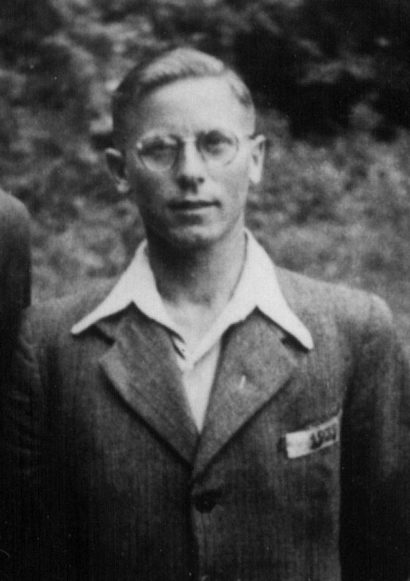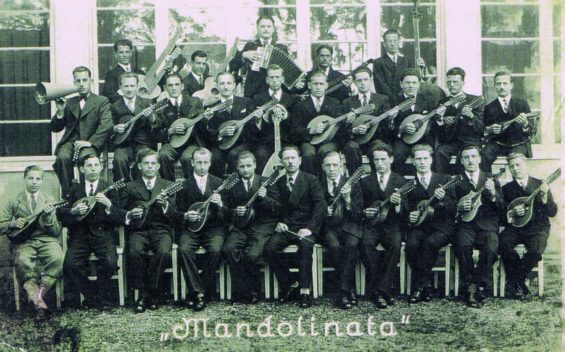Ernst Reiter
born April 11, 1915
![]()
Ernst Reiter after his liberation, May 1945 (Historical Archives of Jehovah’s Witnesses, Selters)
Conscientious Objector on Religious Grounds
Ernst Reiter came from Graz. His parents died when he was eleven years old, and Reiter then lived with his aunt, who introduced him to the Jehovah’s Witnesses. In 1933, he was able to avoid military conscription. After the annexation of Austria to the German Reich in March 1938, Reiter refused military service. As a result, he was arrested by the Gestapo in September. After six months’ imprisonment, Reiter was transferred to the Grafenwöhr military training ground in the Upper Palatinate. After he again refused military service, the Regensburg military court sentenced him to a jail term of eighteen months.
![]()
Ernst Reiter (front right) in the Graz mandolin orchestra “Mandolinata,” ca. 1930 (Historical Archives of Jehovah’s Witnesses, Selters)
Reiter was not released after serving his sentence. Instead, he was transferred to the Flossenbürg concentration camp in late November 1940. At Flossenbürg, he was first forced to work as a stonemason, and later as a scribe in the clerical office. Like the other Jehovah’s Witnesses in the camp, he did not renounce his faith. The SS therefore ordered corporal punishment for the entire group. Reiter suffered severe abuse at the hands of the SS repeatedly during his imprisonment. Along with other prisoners, he was sent by the SS on a death march to the south. On April 23, 1945, Reiter was liberated in Cham.
Ernst Reiter returned to Graz. He worked as a sales representative, married, and had a family. On April 25, 2006, he died at the age of ninety-one.

